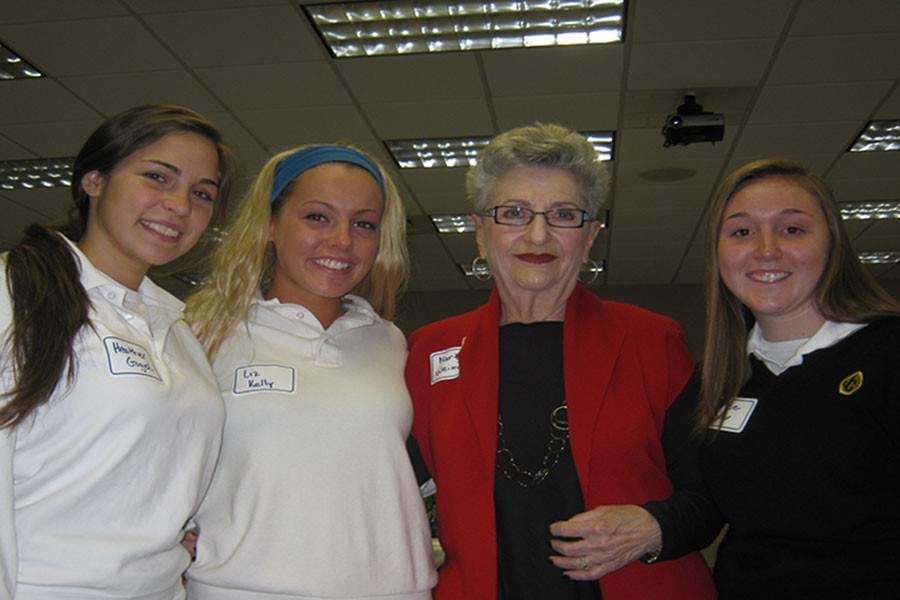Holocaust tradition changes
Three JC alum stand with a Holocaust survivor. In the past, Holocaust Remembrance Day was only open to seniors, but now it is open to both juniors and seniors.
During World War II, Oskar Schindler, a native from Czechoslovakia, moved to Kraków, Poland, an area near Auschwitz. In Kraków, he convinced Nazi leadership to allow him to open a factory where he could profit large sums of money off unpaid Jewish workers. As time progressed though, Schindler went from being an exploiter of Jews to a savior.
In 1939, Nazis invaded the peaceful Jewish community of Kraków and forced them into nearby labor camps. In order to save the Jews from deportation and death, Schindler took them to work in his factory and eventually moved the factory out of Poland and into Czechoslovakia, taking his workers with him. In this rescue effort, he used large sums of his own money.
One of the lives he saved was 12-year-old Halina Brunengraber Silber. She was the only one in her family who was not murdered by the Nazis. Silber has decided to share her story with the junior and senior classes.
In the past, The Holocaust Remembrance Day was only open to the senior class, but this year, the faculty has decided to change things. “We feel as though the [Holocaust survivors’] stories are significant enough for more people to hear,” Senior Project Coordinator Louise Geczy said.
As part of The Holocaust Remembrance Day, Geczy will be showing Schindler’s List, a Steven Spielberg movie about Schindler’s courageous attempts to save the Jews, in the auditorium on February 17 at 6:30 p.m. This is being done at the request of Silber because she feels the movie will make her story more impactful for the students.
The senior class is also taking initiative to commemorate the last of the survivors. Senior Nicole Arrison is putting together a video of the Holocaust survivors’ stories speaking at the Remembrance Day. “I wanted a project that would leave a mark and impact the future classes of JC,” said Arrison.
“[Arrison’s] video is putting a face on history,” Geczy said. Arrison feels once the Holocaust survivors are no longer able to share their stories, her video will be a new way for their stories to live on.
According to Geczy, “the Holocaust survivors are dying faster and faster every year, so it’s good to get their stories out while we can.”
Tona Rimpel is a Video Editor for The Patriot and jcpatriot.com.



